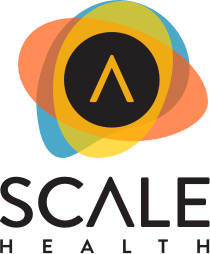Remember sex-ed in middle or high school? You and your classmates probably felt awkward and embarrassed, counting down the minutes until the bell rang so you could rush out of the room. You’d think those bashful feelings would subside in adulthood, yet turn on any news outlet or step foot in a clinic and you’ll quickly see that the social stigma around sexual health remains.
This stigma is particularly strong around women’s health and sexual well-being, which often means women either don’t seek care (for fear of feeling ashamed) or don’t get the appropriate treatment they need, when they need it. Yet, when it comes to STDs, statistics show that testing and treatment should be a priority for women.
According to the CDC, STDs disproportionately affect women. Untreated infections like chlamydia and gonorrhea (which are often asymptomatic early-on) can lead to pelvic
inflammatory disease, a serious condition that could result in “chronic pelvic pain, infertility, and potentially a life-threatening ectopic pregnancy.” It is estimated that undiagnosed STDs cause infertility in more than 20,000 women each year.
The health risks don’t stop there. A 2014 study by the CDC’s Division of STD Prevention found that at least 80% of sexually active people will have an HPV infection in their lifetime. This common sexually-transmitted virus is responsible for approximately 31,500 cases of cancer each year, including nearly all cases of cervical cancer and about 75% of vaginal cancer.
Not to mention limited resources and a lack of STD prevention infrastructure nationwide. According to the CDC, “over half of state and local STD program budgets have been cut in recent years, resulting in staff layoffs, reduced clinic hours, and increased patient co-pays that can limit access to essential diagnosis and treatment services.”

If left untreated, STDs like chlamydia, gonorrhea and syphilis put patients at risk for “lifelong health outcomes like chronic pain, severe reproductive health complications, and HIV,” all of which increase the burden on both the patient and our healthcare system.
This isn’t intended to scare you. It’s intended to show that our approach to women’s sexual health needs to change.
In honor of STD Awareness Month this April, we’re shining a light on a few of the healthcare innovations that are breaking down stigma and providing new, affordable and convenient ways for women to take control of their sexual health. It’s our mission at Jessie, an online personalized women’s health platform, to connect women with trusted resources and on-demand care so that we can begin to shift the statistics.
Two such vetted care providers are myLAB Box and EverlyWell, both leading digital health companies who offer safe and discreet at-home STD testing.
In a recent press release, Lora Ivanova, CEO and Co-Founder of myLAB Box said, “STD rates in this country are at red-alert levels, increasing year after year. We believe that access to an at-home alternative will remove the stigma and shame of STD testing, allowing people to take control of their sexual health.”
Her Los Angeles-based health tech company offers at-home screening kits for 15 types of STIs. All myLAB Box tests are validated by fully licensed CLIA-certified lab affiliates and are significantly more affordable than conventional lab tests thanks to their direct-to-consumer model. The tests take less than five minutes, and if anything comes back positive, users have the option to access a free physician consultation online.
Similarly, Austin-based, female-founded company EverlyWell offers several types of at-home STD testing kits, including an STD Test for Women, which screens for seven of the most common sexually transmitted infections that could harm you if left undiagnosed and untreated. Other sexual health kits include tests for chlamydia and gonorrhea, syphilis and HIV. All tests are reviewed by independent board-certified physicians and users receive their results (along with actionable insights and medical resources to manage a diagnosis) via EverlyWell’s secure platform.
By providing increased privacy, affordability and convenience, platforms like myLAB Box and EverlyWell are making it easier for women (and men) to manage their sexual health and access critical prevention and treatment options from the comfort of their home. At Jessie, we’re proud to connect women to these vetted providers through our personalized health platform. You can learn more about our partners and sign up for the beta launch at: https://www.hellojessie.com/.




